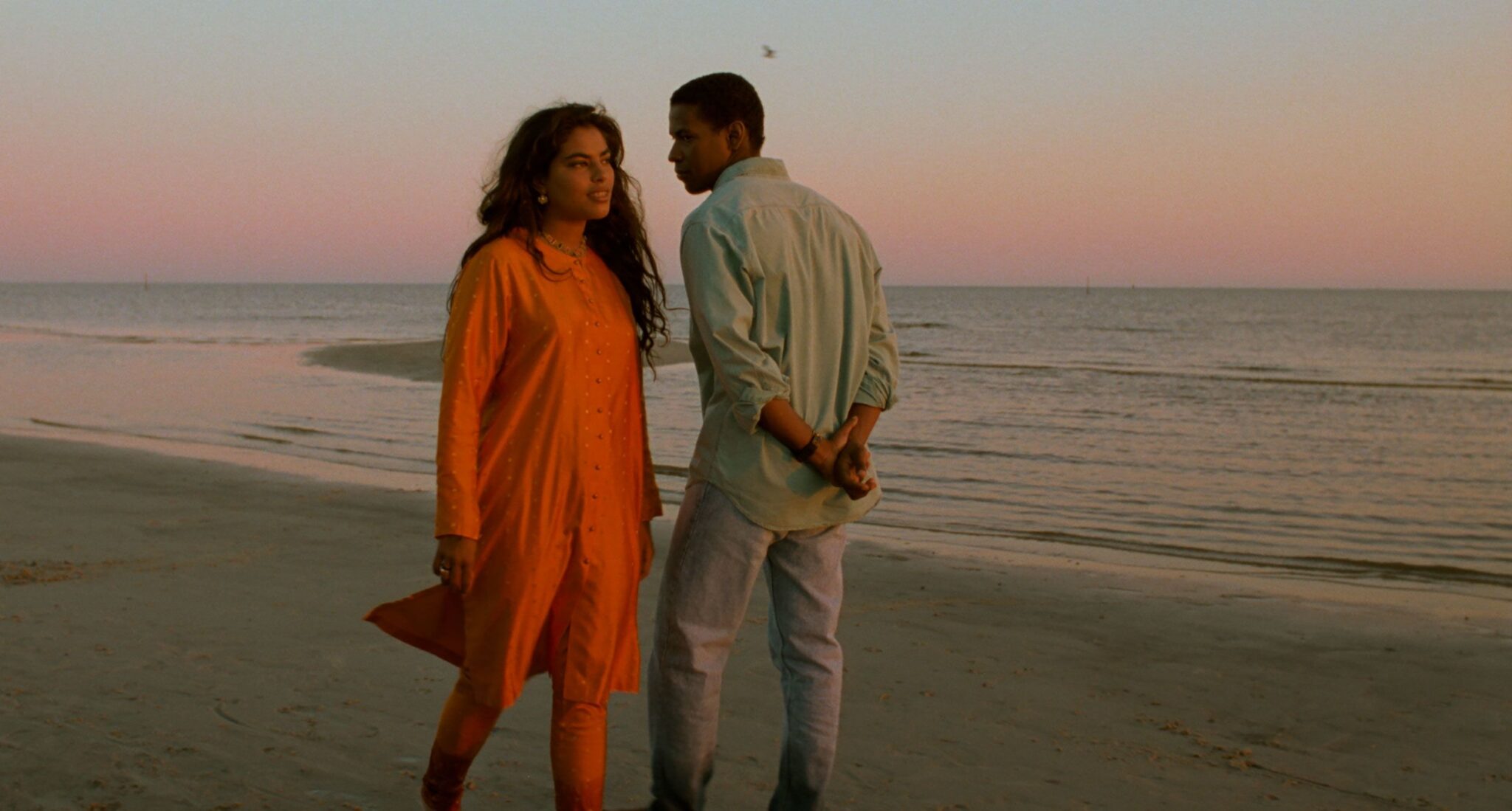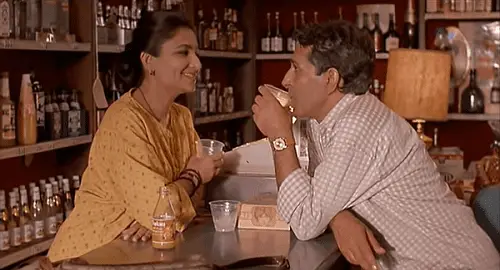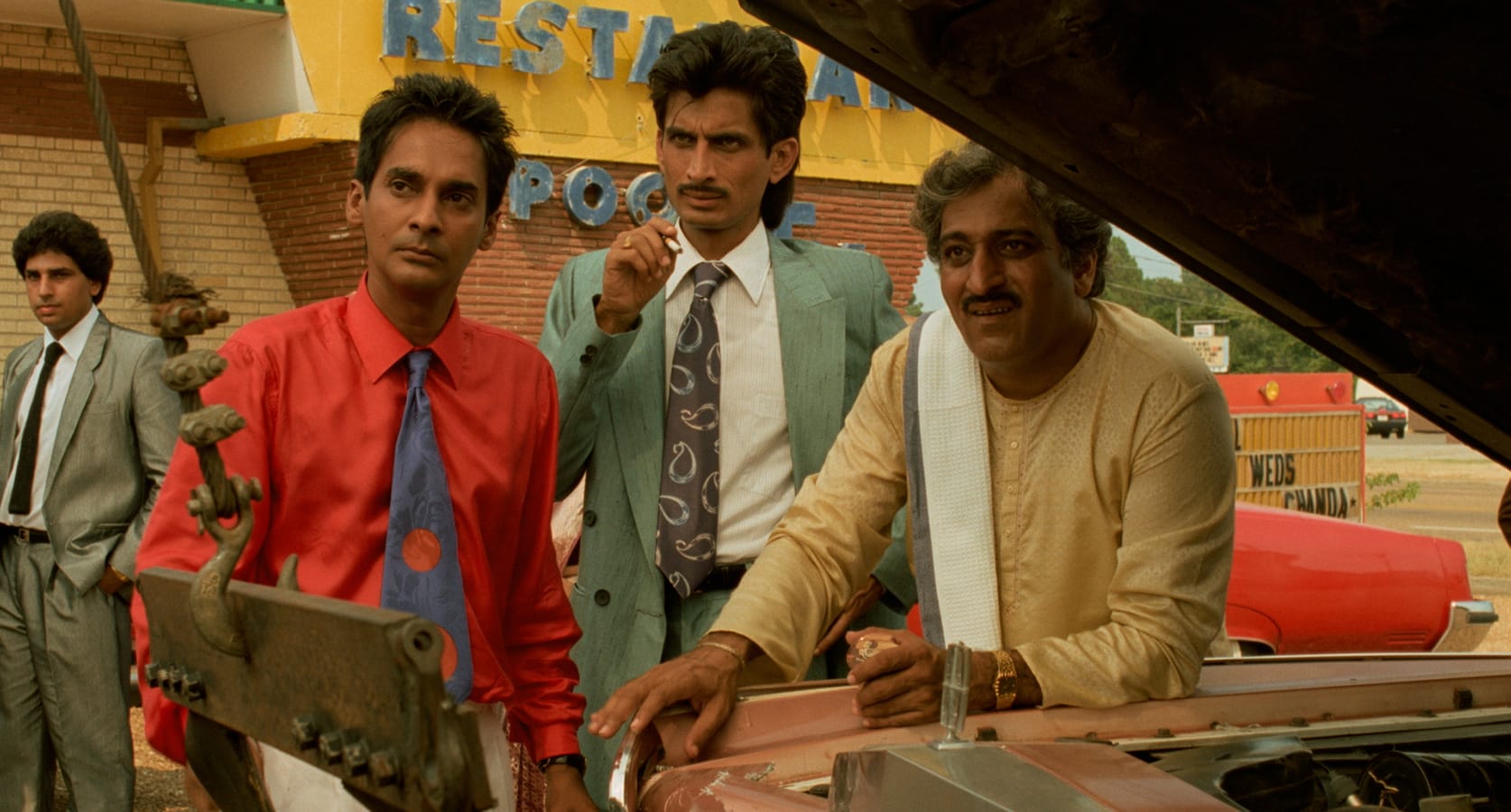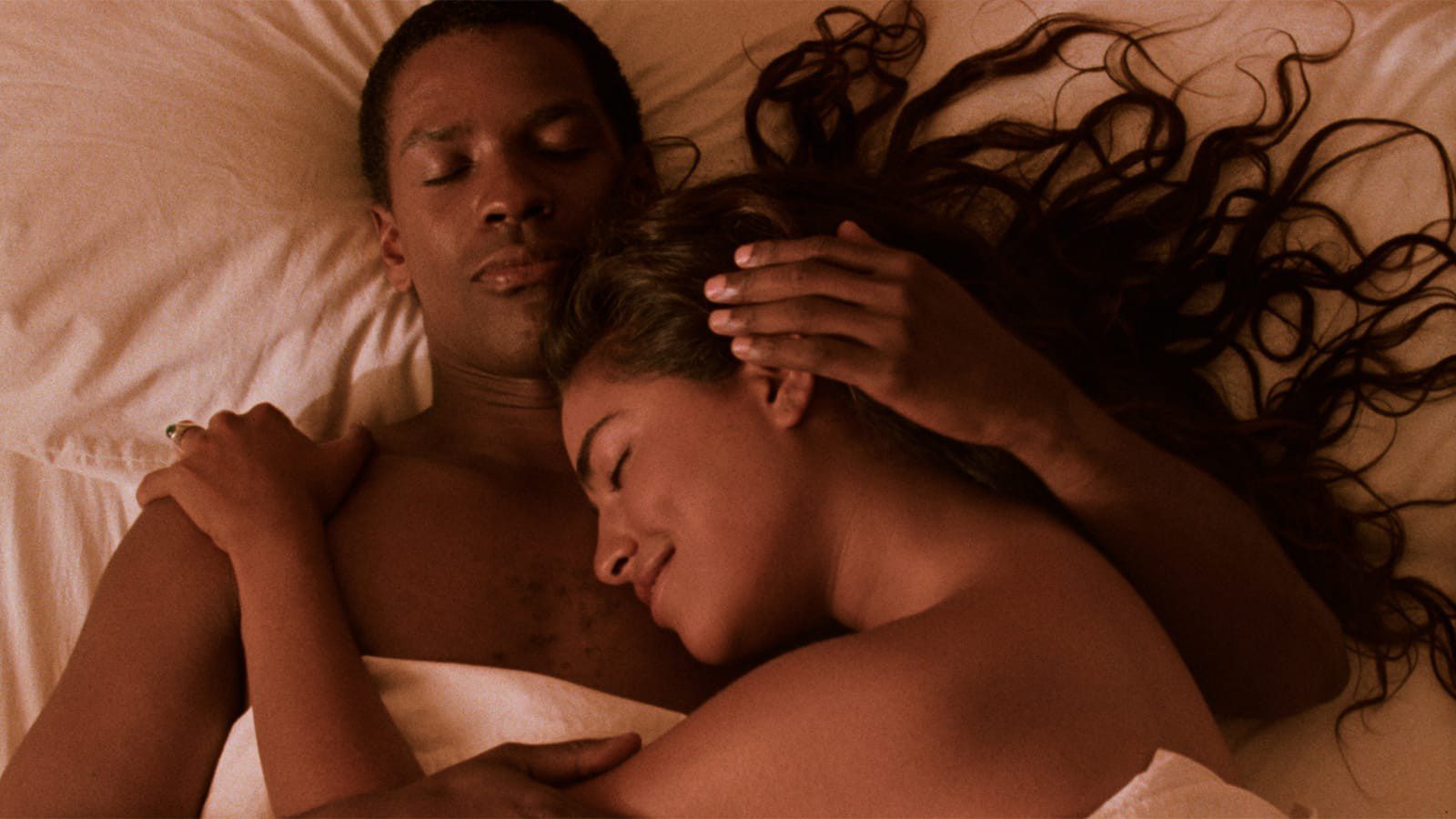“You can be dark and have money, or you can be fair and have no money. But you can’t be dark and have no money and expect to get Harry Patel.”
Like all great movies, Mississippi Masala isn’t about one thing; it’s about a hundred little things. But at the center of Mira Nair’s 1991 masterpiece is a straightforward yet compelling notion: yearning. The characters in Nair’s film are plagued by a sense of want and desire, some romantic, and some by the primal and universal yearning for a home.
Set mainly in Greenwood, Mississippi, Nair and her screenwriter, Sooni Taraporevala, populate their story with a revolving cast of characters as they try to get by. Both Nair and Taraporevala come from documentaries, and the two are known for the immense research they pour into a movie, injecting an authenticity that allows the fiction to flourish.

Taraporevala’s script juggles complex themes and politics, mainly without ever addressing them. Characters bear grudges and prejudices, but rarely do they monologue about them. Nair and Taraporevala instead choose to show the little ways colorism affects Black and Brown people and how both are forced to navigate America’s caste system.
All of this would have made a fascinating move on its own. But Nair and Taraporevala go one step further and plant an interracial love story in the center of this tapestry. Like the deep south where the film is set, Nair and Taraporevala give the tale a languid and humid feel, allowing a sensuality and burning desire to crackle between their star-crossed lovers.
Fresh off his Academy Award-winning turn in 1990’s Glory, Denzel Washington as Demetrius, a struggling carpet cleaner, reminds us of an alternate timeline we could have had: Washington as a romantic leading man. The way he walks and holds himself, there’s more than a little to swoon over whenever he gives Sarita Choudhury a smoldering look of interest.
Choudhury herself was making a debut. A film student, not an actor, she uses her inexperience to show Mina’s nervous, almost respectful rebellion. With a wave of dark lustrous hair and a smile that pulls the camera towards her, we, the audience, understand why Demetrius is so smitten with this bold, quiet woman.
Mina and Demetrius’s affair is the driving force that ties all of Taraporevala’s complex themes together, allowing Nair to deftly capture moments of beauty and truth without calling attention to it. The two use politics almost as a comedic relief in what Nair and Taraporevala call “the comedy of exile.”
For that is what everybody is in one way or another in Missississippi Masala, exile. Mina’s parents, Jay (Roshan Seth) and Kinnu (Sharmila Tagore), as well as most of the other Indian community, were forced to flee their home in Uganda because of the dictator Idi Amin. Jay’s childhood friend Okelo (Konga Mbadu) helps him and his family escape but tells him, “Africa is for Africans. Black Africans.”

Taraporevala’s narrative in Mississippi Masala shows the parallels between Indians who have never been to India but are from Africa and Black Americans who have never been to Africa. Both have found themselves in Greenwood in the way both have been oppressed and forced into exile. It’s in this setting that Mina and Demetrius run into each other. Mina crashes into Demetrius’s truck, and it’s clear from the first moment that there’s something there.
There’s been a lot of talk about how little sex seems to exist in modern films. But watching Mississippi Masala, I was struck by not only is there so little sex in movies, but there is so so little variety of sex in movies. The eroticism of Mississippi Masala is so gentle but undeniable. While there is a sex scene, and it is remarkable, partially due to Mina’s total self-possession in that scene, it is not the scene that sticks in my mind.
It’s the scene between Washington and Choudhury on the phone, talking to each other in their underwear. The hot Mississippi evenings, both drenched in sweat, coyly playing with the phone lines, the way the sheet hangs off of Choudhury’s hips hinting but never showing, or how Washington has his legs crossed, his undershirt slightly up, hinting but never showing, as they have an intimate conversation. Not all sex needs to be sexual; sometimes, seeing two characters talking is sexier than anything.
Or the infamous scene where the two walk along the bayou, with Choudhury putting up her hair, as Washington looks on, walking backward to keep pace with her. The setting sun bathing them in a lush light as they gaze at each other.
Nair allows the love story to drip and pulsate while using the heat from Mina and Demetrius to highlight the characters around them. Demetrius’s father, Willieben (Joe Seneca), his brother, Dexter (Tico Wells), and his best friend, Tyrone (Charles S. Dutton), are happy to see Demetrius happy. Especially since his ex, a now successful model, is back in town.
Though Mina’s community is less supportive, partially due to Mina’s own darker skin, spawning an infamous line about how it’s okay to be light-skinned and poor, dark and rich, but being poor and dark-skinned is unforgivable. Pontiac (Mohan Gokhale), Anil (Ranjit Chowdhury), and Napkin (Mohan Agashe) are seemingly everywhere within the community, commenting on and fixing issues within the group; they also begin to show a strain of colorism.
“Cruelty has no color,” Jay says. Memories of Okeleo’s words echo in his mind. Yet, Nair and Taraporevala don’t let Jay off the hook. His prejudices towards Black Americans, stemming from how he was treated in Africa, are evident to Mina but not to him. Little things like this show how even non-white people can benefit and even uphold systems of white supremacy without realizing it.

But tied into this is also how the film understands how yearning for the past can hamper a better future. Jay is obsessed with returning to Uganda, suing the government for his property, and is known throughout the community for being a bit of a kook. Meanwhile, Demetrius’s father, Williebean, got a loan for his carpet cleaning truck because his boss, whom Demetrius’s mother used to be a maid, vouched for him.
Mississippi Masal shrewdly shows how Blacks are meant to grovel at the very feet of the white people who are responsible for their oppression to get by, much less ahead. Demetrius can’t understand why his father is so grateful to a woman who has never shown them genuine respect. In his way, Demetrius is rebelling against his parent’s attitude of deference.
Nair’s documentary background is evident in how she stages and observes her characters. Along with cameraman Ed Lachman, Mississippi Masala reminds us that cinema is an art form made for faces and that within every wrinkle and crag lives a story or harbors a personality. The way Nair and Lachman sit back and watch Choudhury glide her grocery cart of milk across the frame as if catching her in an unguarded moment is rapturous and whimsical at the same time.
Striking a balance between the real and the whimsy is something Nair delights and excels at. A scene at the beginning where we see a young Mina (Sahira Nair) and her parents fleeing Uganda straddles such a line. Two guards pull Kinnu aside and go through her suitcase, the rain acting like the tears of a people being forced from their home, as the officer uses his gun like a prod. Soon, a radio will play a song, and another officer will dance. Nair has taken a moment of dread and, without ever deflating it, made it into a luminary space of confusion and complexity and somehow discovered a poetic truth.
Lachman used different film stock and different lenses, depending on the location. He used Fijim film and what is essentially a portrait-style lens for the scenes set in Uganda, capturing the lushness of the vast jungles of the Ugandan countryside. Conversely, he switched to Kodak film and a Zeiss lens to lend a harsher, sharper edge to the images in Mississippi.
The lush colors of the locations and the clothes the characters wear consciously inform the emotions Nair and Lachman evoke from the story of displaced peoples. In Lachman’s own words, “Images in photography is a way of externalizing what’s the emotional context of the story in the scene.” Even the roadside motel where Mina and her family live, The Monte Cristo, with its shimmering yet dirty pool, evokes a feeling of Uganda by way of Mississippi.
Nair and Lachman take great care in how they light the scenes, mindful of the masala of skin tones. It’s almost depressing to see how much care went into light such a diverse cast when modern movies that boast such facts as a selling point can barely be troubled to light anyone well.
One of the things I find troubling about current movies is not the lack of sex, the way so many are filmed radio plays, but the stunning lack of curiosity. Nair is intoxicatingly curious about her characters and the world they inhabit. Mississippi Masala is about two equally curious people, surrounded by people who aren’t, and how they navigate this thorny puzzle. There’s no mystery or puzzle to solve because you can’t solve humanity; you can only look at it and marvel.
Even the way the characters talk belies a love of the mish-mash of the American immigrant experience. The way Taraporevala’s characters speak blending English with their native tongue. In one instance, Napkin warns Anil, “That you’re becoming an American.” A statement that Anil takes as a compliment rather than the warning it was intended.

Towards the end of Mississippi Masala, a character has a line, “There is so little love in the world…and yet so much.” Sublime, in its simplicity, the line moved me to tears. Nair and Taraporevala see the generation gaps and understand that everyone is trying to protect their loved ones, realizing it’s almost impossible. In a way, that quote is the embodiment of Mississippi Masala. It is a story about people terrified of the lack of love in the world who are stunned by how much of it exists in the world around them and within themselves.
Images courtesy of The Samuel Goldwyn Company
Have strong thoughts about this piece you need to share? Or maybe there’s something else on your mind you’re wanting to talk about with fellow Fandomentals? Head on over to our Community server to join in the conversation!

